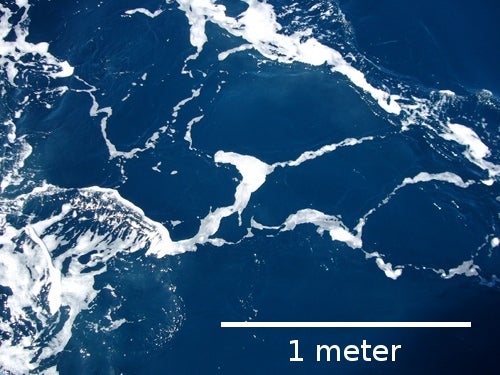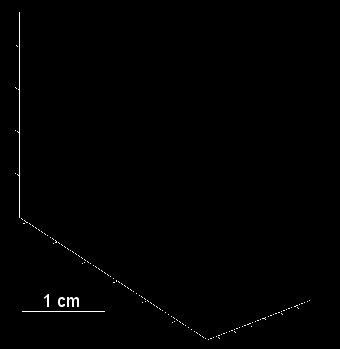
Plankton Ecology
There are two major research themes in the lab plankton production and motility. The animation below shows the swimming track of a single-celled plankton, the photo below right shows the ocean surface and is a reminder of the complex environment plankton inhabit.
Single celled organisms make planet Earth habitable, more comfortable and enjoyable. Marine microbes represent tremendous biological, physiological and behavioral diversity. The study of marine microbes is urgent to further our understanding of environmental, medical and sustainability challenges. Research on marine microbes provides tremendous opportunity for discoveries.

Research in the lab focuses on marine, eukaryotic protists. The key challenge motivating this work is to reconcile highly diverse microscopic species and their biology with impacts relevant at a global scale, such as the cycling of organic carbon in the ocean. Research foci include predator-prey interactions in the micro-plankton, environmental and biological drivers of net primary production, the role of spatial heterogeneity on plankton population dynamics, and the role of intra-specific variability in physiology and behavior as a mechanism that promotes biodiversity. These investigations are done with the knowledge that the ocean is changing at a rapid pace. A common outcome of our investigations is that protists never cease to amaze in their fabulous capacity to present surprising solutions to ecological challenges.
